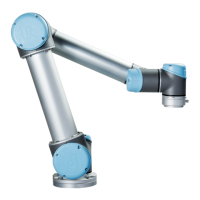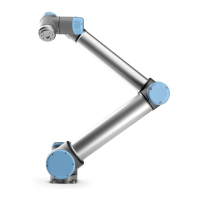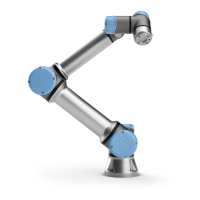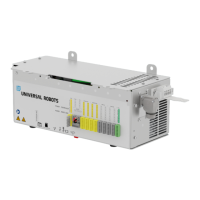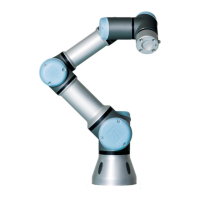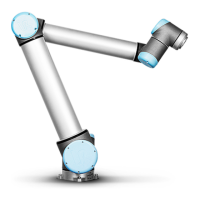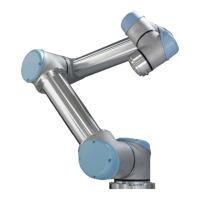These faults can be hidden from view under the following two circumstances:
WARNING
Ignoring protective stops masks fault detection!
Pay careful attention to protective stops.
1. Personnel simply resetting a fault without review of why the fault has happened.
Protective stops must never be acknowledged and reset automatically, it must always be a
deliberate action by a user to resume after a protective stop.
In general, protective stops are designed to inform the user that the robot has stopped due
to an external event such as hitting an obstacle or similar. In case the robots are pushed
close to the limits, the robots can generate protective stops to indicate that they are not
capable of following the desired trajectory. After a protective stop, the following must be
done before resuming operation:
1. If there has been a collision or similar:
Remove the obstacle and ensure that operators are out of the way before resuming
operation. See Section 2 of Service Manual (see link below).
2. If there has been NO collision or similar:
The robot is operating too close to the limits, the application should be adjusted to
reduce the load on the robot, for instance by reducing accelerations, by correct use
of blends or similar measures.
Protective stops are indications of issues, including program or production issues – not only
safety issues. An application which results in daily protective stops is not designed correctly and
needs to be modified.
2. If an automatic acknowledgement and reset of a protective stop has been programmed –
no one will see the protective stop.
WARNING
Automatic acknowledgement and reset of protective stops masks faults that will
lead to a failure condition.
When there is a protective stop, verify the cause.
If there has been no collision, then adjust the program.
If an integrator has set-up the application program to do automatic acknowledgement and reset
of protective stops, the customer should contact the integrator change the program immediately,
as such override voids the product warranty and masks fault detection.
Service Manual 203 UR3
7.Troubleshooting
Copyright © 2009–2021 by UniversalRobotsA/S. All rights reserved.
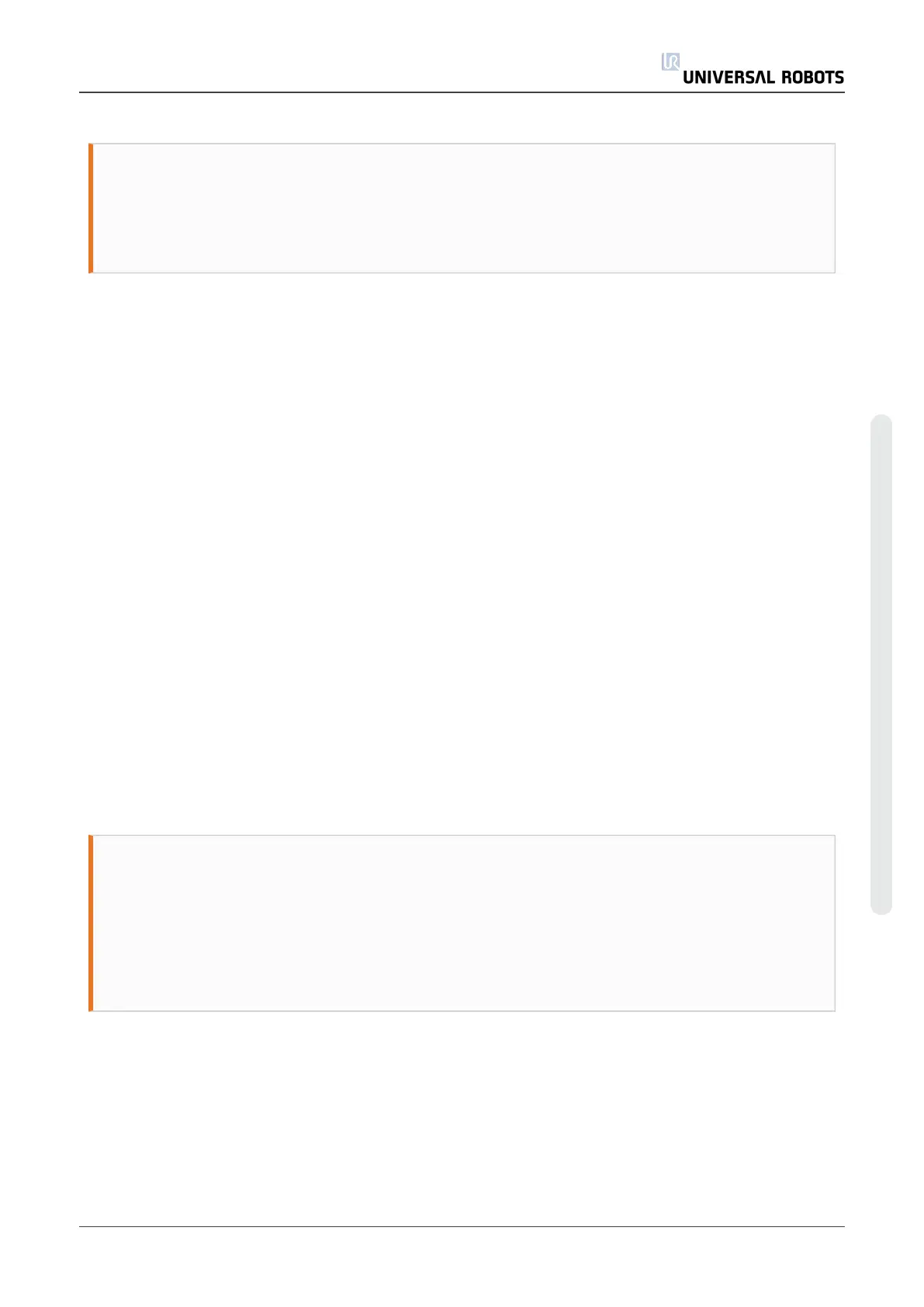